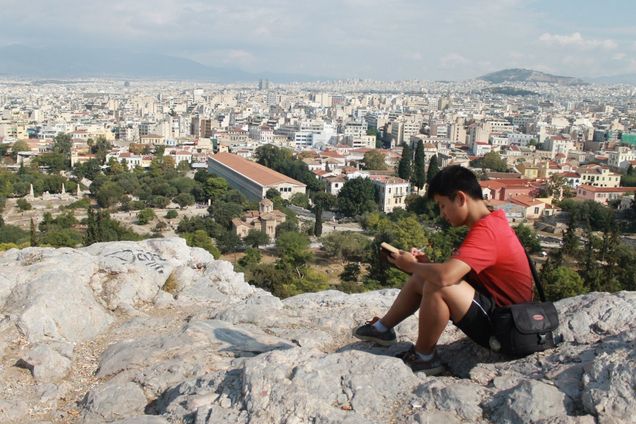A Recent MA Graduate Brings Together China, Greece and Rome
Liu Tong draws parallels between Roman and Chinese notables
When he was in a Greek History class at Boston University, recent MA graduate Liu Tong had an inspired idea. He was impressed by Plutarch’s comparisons between the Greeks and the Romans. But having come to the Classics after literary training in his native China, Tong began to draw his own comparisons – not between Roman and Greek figures, but between Roman characters and the heroes familiar to him from Chinese history and literature. The result is a Chinese-language book in progress, using Plutarch as a model: the Parallel Lives of Noble Chinese and Romans.

‘Characters in the Han Chinese Empire and the Roman Empire are fit for such comparisons’, says Tong. He explains that both of these empires controlled massive territories and population, had comparable court cultures, and left a tremendous impact on East Asia and Europe. On the model of Plutarch, Tong plans to match pairs of colorful personalities: the Gracchi and Shang Yang for example, as famous reformers, Boudicca and the Trung Sisters as female rebels, and Lucretius and Zhang Heng as ancient scientists. As he says, the book is part of his long-held desire to bring together his joint love of China and the Classics. He wants to ‘bridge the knowledge gap between East Asia and the European West’, and plans future translation projects to make Latin and Greek works more accessible to Chinese readers.
Translation is his current day job, too. Since graduating from the BU Classical Studies MA program in 2016, Tong has been working as a Chinese-English translator in Malden, MA, with a company that also has offices in Beijing and Miami. The company translates educational materials, novels, and financial and immigration documents, which gives him a broad range of experience. He says that his Latin also comes in handy when translating the occasional Italian, too. What about in his free time? When he’s between translation assignments and writing his book, his first instinct is to get out his Latin. ‘I’m working on Horace’s Odes at the moment’, he says. ‘The Agricola is next in line’.